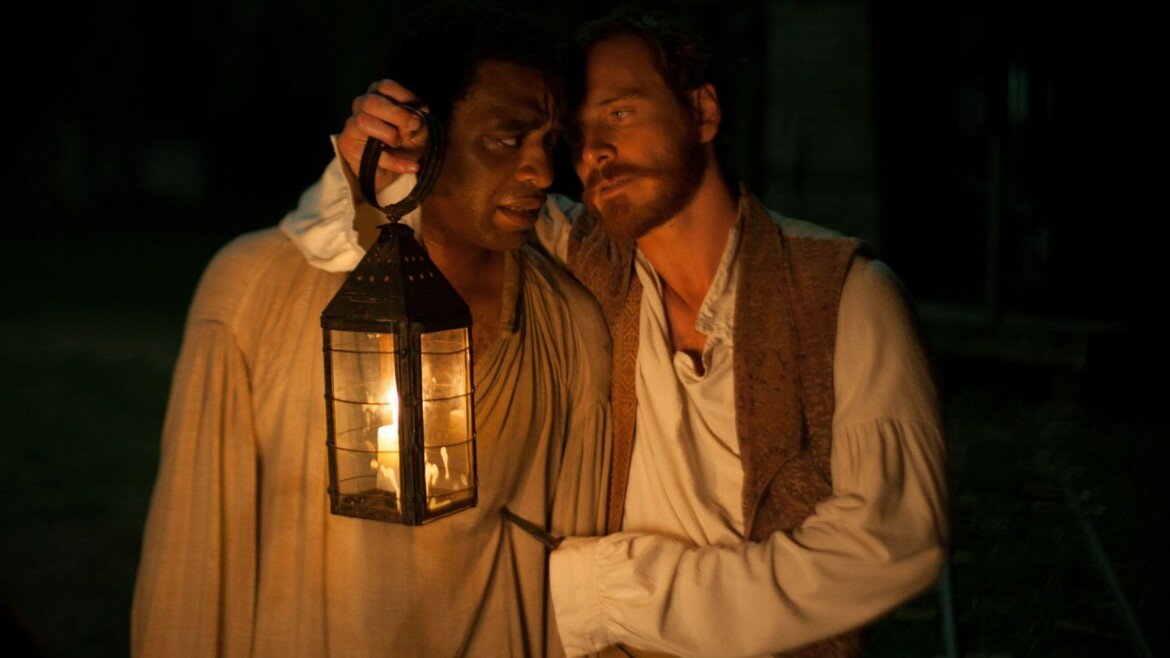Words: Josh Powlesland
Director: Steve McQueen
Cast: Chiwetel Ejiofor, Michael Fassbender, Lupita Nyong’o, Benedict Cumberbatch, Brad Pitt
Certificate: 15
Running time: 134 mins
Image copyright: Fox Searchlight Pictures
As 12 Years a Slave opens we are immediately alerted to the fact that it is ‘based on a true story’, and this dark reminder sets the tone for what is to come. Chiwetel Ejiofor stars as Solomon Northup, a free man living in New York with his family who is kidnapped and forced into slavery, and immediately the film flashes between these two periods in his life. This uncomfortable distinction between freedom and slavery is made clear from the start with polite greetings being juxtaposed against aggressive racial slurs, fine clothes replaced with rags, and a smiling father becoming a deeply sad and entrapped man.
There is barely a scene which Ejiofor isn’t in, and he commands the screen from the very beginning. The weight of his circumstance is visibly wearing him down as he is forced to even greater depths, and it is an exceptionally strong performance. This is matched by Lipita Nyong’o who plays a slave woman named Patsey, as well as by slave owners Benedict Cumberbatch as ‘half-decent’ Ford and Michael Fassbender’s despicable sadist Edwin Epps; an example of everything that’s wrong with the way in which fellow human beings were treated purely based upon the colour of their skin. The one weakness for me when it came to the cast was that of Brad Pitt as Canadian labourer Bass, whose delivery felt more suitable for a traditional period drama than this more gritty and realistic interpretation.
As is fitting for a film based on the subject of exploitation and slavery, there are some scenes which are exceptionally difficult to endure – a good example of this is when Solomon is forced by Epps to brutally whip Patsey for no real reason besides Epps’ insecurity. This is but one of multiple powerful emotional scenes in the film, and it’s times like these which allow the cast to shine. The sadness really comes through in every aspect of Ejiofor’s performance, and the fact that his story isn’t even the most tragic is truly heart-wrenching. At least the film ends somewhat happily for Solomon – a single look between him and Patsey towards the end drives home the real message of this film: the true story McQueen mentions at the opening is not just that of Solomon Northup – it is the story of every person who was ever forced into slavery. We are shown through the character of Patsey that the vast majority of slaves didn’t get a chance to return to their old lives, and this note of melancholia is only furthered by the closing notices which stated that those responsible for his twelve years of slavery were never brought to justice.




